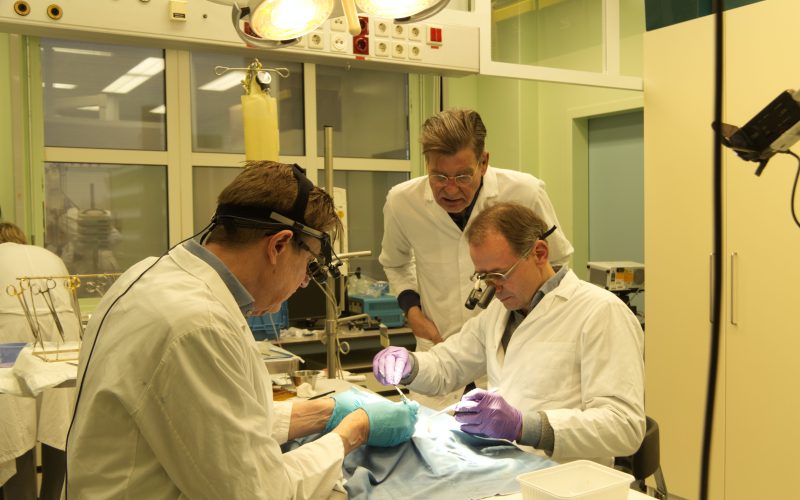UMC Utrecht and startup OctoVascular BV are developing an innovative solution for bypass surgery. This technology allows blood vessels to be connected through a small incision. The core innovation – an intuitive, one-size-fits-all connector called Octocon® – is designed from the ground up for both open and robotic workflows, aiming to turn bypass surgery into a low-trauma, short-stay procedure. The project has received €900,000 in funding from the Dutch Top Consortium for Knowledge and Innovation (TKI).
Each year, more than 800,000 patients undergo CABG procedures worldwide. While robotic and endoscopic techniques are gaining traction, the step of connecting blood vessels remains largely manual and technically demanding. This gap hinders the transformation of coronary bypass surgery into much more patient-friendly and cost-effective procedures.
Octocon® aims to fill this gap with an intuitive solution that standardizes this most delicate part of the operation. Octocon® is uniquely designed to operate under full vision — a key enabler for robotic application. The connector has been successfully evaluated in bench and model testing. A clinical pilot study is being prepared.
Octocon® is specifically designed for less traumatic, body-sparing bypass procedures — a goal that has remained elusive for decades. The key differentiator lies in its architectural simplicity. Its three-step deployment system is semi-automated and minimizes vessel manipulation. This streamlined approach not only makes conventional surgery faster and more reproducible but also makes the technology inherently compatible with robotic application. “Where earlier technologies struggled with complexity and limited usability, we focused on simplicity, reproducibility, and true minimally invasive access from the very beginning,” says Prof. Willem Suyker, cardiothoracic surgeon and co-developer, UMC Utrecht. “Octocon was designed for robotic use from day one, but it also adds significant value to conventional beating-heart surgery. This versatility is essential to transform the field toward less invasive care.”
UMC Utrecht and OctoVascular BV will lead a structured validation program, supported by the Health~Holland TKI initiative. The plan includes preclinical testing and a first-in-human study. By drawing in robotic experts across Europe and the US, the program aligns with broader efforts to modernize cardiac surgery. If successful, the technology will help transforming the field of open-heart bypass procedures to faster, safer, and more cost-effective care models.
